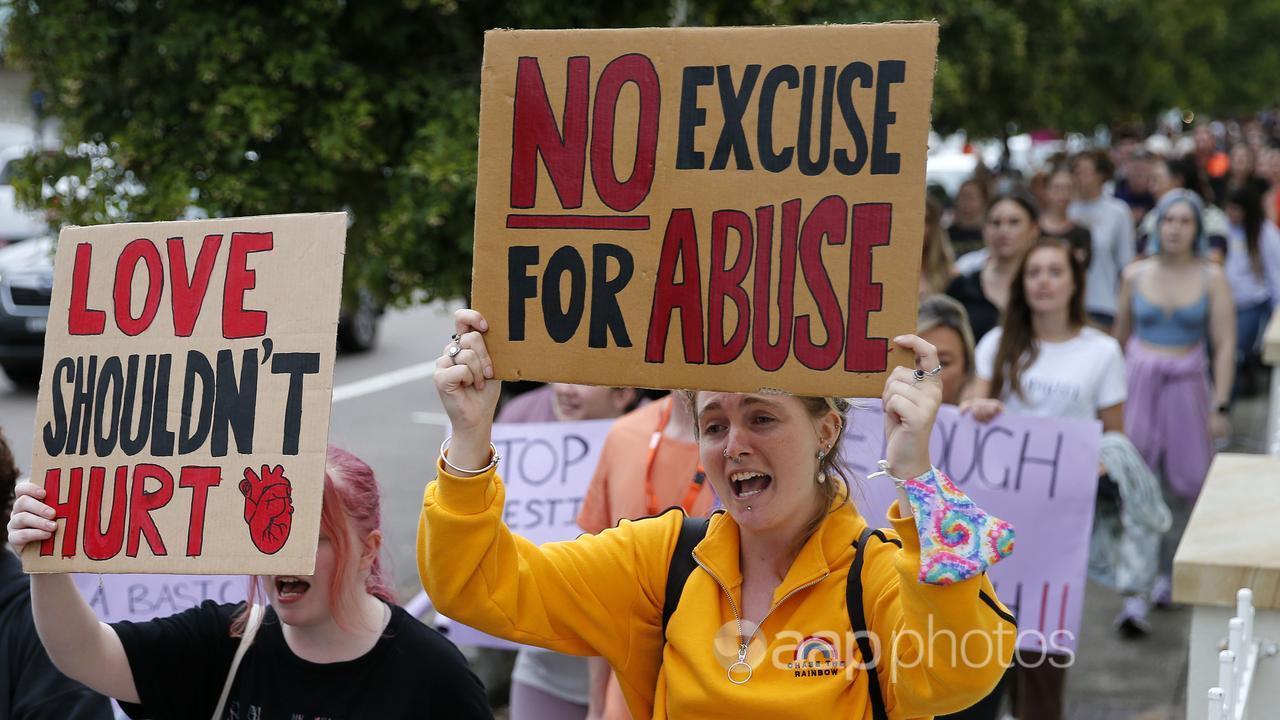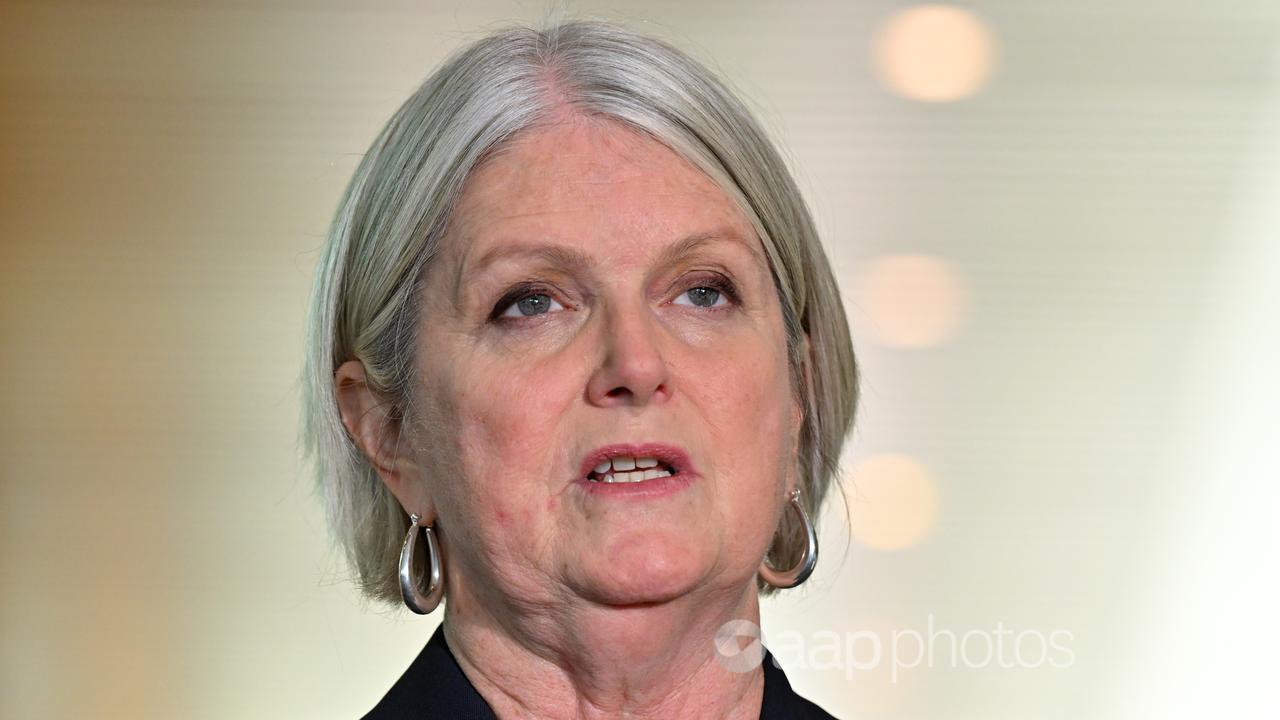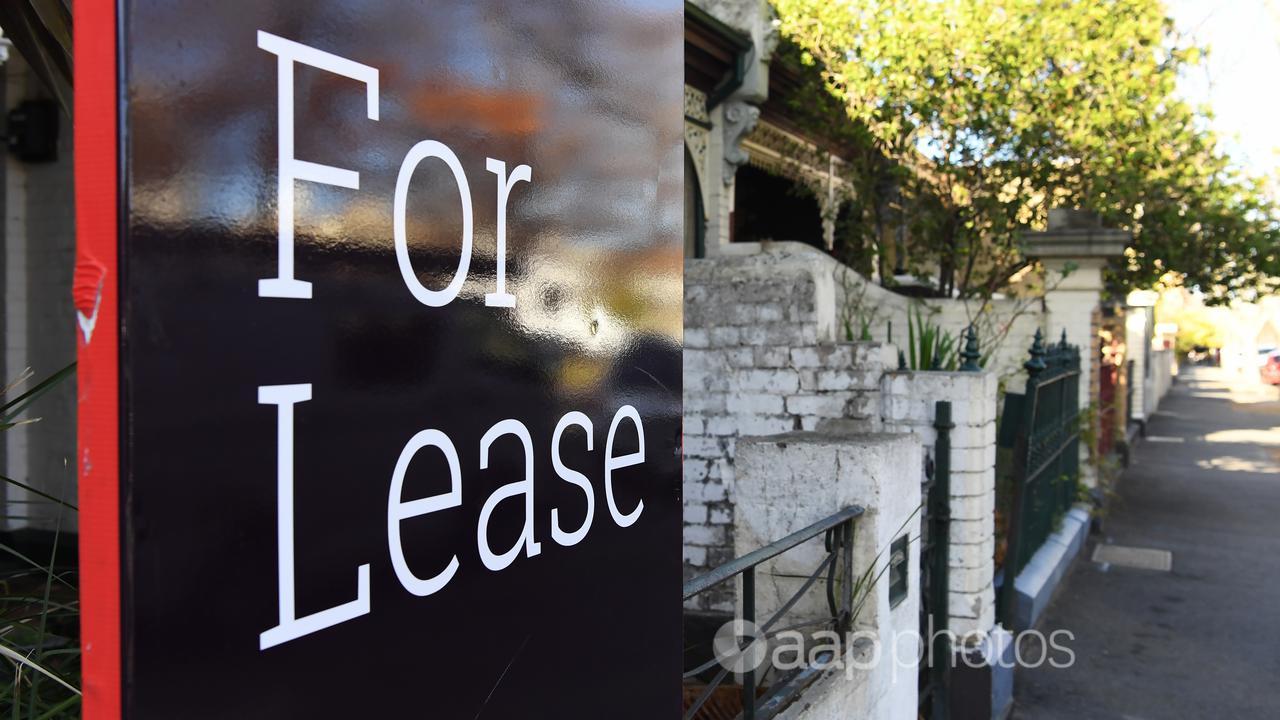An Australian anti-vaccination group’s claims that doctors must prove a COVID-19 jab did not cause injury or they can be sued would not hold up in court.
In videos posted to the group’s Facebook page a woman, who says she worked for pharmaceutical companies and was a registered nurse, makes several claims about medical liability and COVID vaccines.
In one video she says: “I … learned that a doctor is not insured if they can’t prove to you that the vaccine injury you’ve got was not caused by the vaccine or for any medication. They need to be able to hold the research paper and say ‘for you, for your medical conditions, no, your side effects were not caused by this medication’,” (video mark 4 min 45 sec).
The woman makes similar claims in another video (video mark 1 min 15 sec) telling the interviewer she was taught you can sue a doctor if they can’t prove a vaccination didn’t cause any side effect suffered.
Multiple experts told AAP FactCheck the claims are wrong as the burden of proof in medical negligence cases in Australia falls squarely on the plaintiff. Additionally, experts said it is unlikely there would be any grounds for negligence on behalf of doctors with regards to Australia’s COVID vaccine rollout.
“A person suing a doctor bears the burden of proof,” Sydney lawyer and medical negligence law specialist Bill Madden told AAP Factcheck in an email. “In other words, the patient has to prove negligence and also damage caused by the negligence.”
Mr Madden said the claims made no sense as “indemnity insurance is intended to cover negligent failures, such as a failure to provide a warning”.
Tina Cockburn, an associate professor at the Queensland University of Technology’s School of Law and co-director of the Australian Centre for Health Law Research, says medical negligence liability in Australia is not strict liability.
“In order to succeed against a doctor the claimant must establish negligence,” she told AAP FactCheck in an email.
Barbara McDonald, a professor at the University of Sydney Law School, also says: “The claimant has the burden of proving negligence by a particular doctor and that it caused the damage.”
To prove negligence, a plaintiff has to show breach of duty and causation – that a physician breached the standard of care and the injury was caused directly by that breach.
Associate professor Cockburn says that’s difficult to prove.
“In other jurisdictions claimants have faced huge challenges establishing causation (that their injury was caused by the vaccine given the absence of clear medical evidence) and there has been protracted litigation about this.”
Queensland University of Technology associate law professor Fiona McDonald, an expert on legal and ethical issues within health systems, said it was very difficulty to imagine a way of establishing liability on a doctor in the case of the COVID vaccine rollout.
Australia’s Health Department says it can’t provide legal advice, but the claim “doesn’t appear to be an accurate reflection of how Australian civil court proceedings are conducted”.
When it comes to COVID-19 vaccine safety, the Australian government warns of possible side effects and the Therapeutic Goods Administration has processes to check for safety and report side effects. Vaccine manufacturers such as Pfizer have also set up reporting of adverse effects.
Doctors do have a duty to warn of possible side effects with vaccines, the experts told AAP FactCheck.
“Yes, patients should be warned about possible side effects, but there has been a lot of information given by government and health authorities about possible side effects,” Prof McDonald said in an email.
Associate professor McDonald says doctors can only advise about known adverse reactions reported by regulators and vaccine makers.
“A doctor does not have second sight and cannot offer any warnings of what is not known or communicated to them,” she said.
In addition, the federal government set up indemnities with some COVID-19 vaccine suppliers to cover possible vaccine-related compensation and against liability for rare side effects. It established a COVID-19 indemnity scheme in 2021 to provide compensation for “Australians who suffer injury and loss of income due to their COVID-19 vaccine”.
The Verdict
Claims in Facebook videos that doctors must prove a COVID-19 vaccine did not cause an adverse reaction or face legal action are incorrect. Legal and medical experts told AAP FactCheck the burden of proof for medical negligence in Australia falls on the plaintiff.
All doctors hold professional indemnity insurance and there are numerous warnings and adverse effect reporting protocols for the vaccines in place. Experts said it is very unlikely there would be any grounds for negligence on behalf of doctors with regards to Australia’s COVID vaccine rollout.
False – The claim is inaccurate.
* AAP FactCheck is an accredited member of the International Fact-Checking Network. To keep up with our latest fact checks, follow us on Facebook, Twitter and Instagram.
All information, text and images included on the AAP Websites is for personal use only and may not be re-written, copied, re-sold or re-distributed, framed, linked, shared onto social media or otherwise used whether for compensation of any kind or not, unless you have the prior written permission of AAP. For more information, please refer to our standard terms and conditions.


















